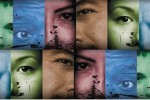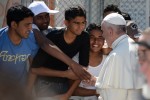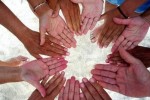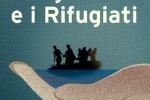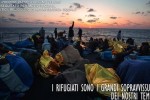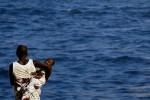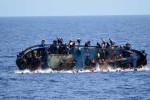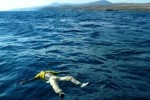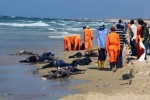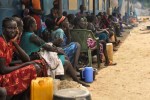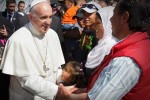MAMT||Museo Mediterraneo dell' Arte, della Musica e delle Tradizioni (EN)
|
27 September 2020
Iniziative (EN) -
MAMT – Mediterranean Museum of Art, Music and Traditions
 In compliance with Covid-19 rules, young people and migrants - in small groups and in turn - gathered on the 5 floors of the Peace Museum to celebrate the 106th World Day of Migrants and Refugees, wanted by the Church since 1914. an opportunity to demonstrate concern for the different categories of vulnerable people on the move, to pray for the challenges and raise awareness of the opportunities offered by migration.
In compliance with Covid-19 rules, young people and migrants - in small groups and in turn - gathered on the 5 floors of the Peace Museum to celebrate the 106th World Day of Migrants and Refugees, wanted by the Church since 1914. an opportunity to demonstrate concern for the different categories of vulnerable people on the move, to pray for the challenges and raise awareness of the opportunities offered by migration.
Pope Francis this year chose the theme "Like Jesus Christ, forced to flee", and focused on the pastoral care of internally displaced persons (IDP).
President Michele Capasso recalled the thirty-year commitment of the Fondazione Mediterraneo and its staff in favor of migrants, summarized in the emotional journey of the Museum entitled "Voices of Migrants".
“The number of internally displaced persons - it was underlined - has increased to the point not only that it can be that of an entire population, but also so much that it reaches the highest level ever. There are 50 million internally displaced persons, but their fate, in the eyes of the world, is even more hidden than that of any other refugee, and this is because they remain within national borders, albeit victims of conflicts, violence, environmental disasters and, today, also of the Covid-19 pandemic. The countries in which there are the highest numbers of displaced people are the same that in recent years are the best known for their endless wars: Yemen, Syria, Libya and Iraq ”.
In response to his experience in Lampedusa and Lesbos, Pope Francis has set up the Migrants and Refugees Section: a small and dynamic Vatican department headed personally by him, believing that special efforts and attention are needed to ensure that those forced to flee are not locked out or left behind.
“We can only emerge from this situation together, as the whole of humanity”, the Pope always emphasizes on every occasion.
The COVID-19 pandemic has undoubtedly made the situation of migrants, refugees, displaced persons and victims of human trafficking even more difficult. Already vulnerable before the spread of the virus, they are now facing new suffering and further injustices, which affect their rights, their safety and their health.







